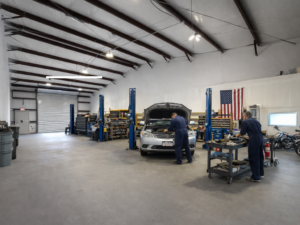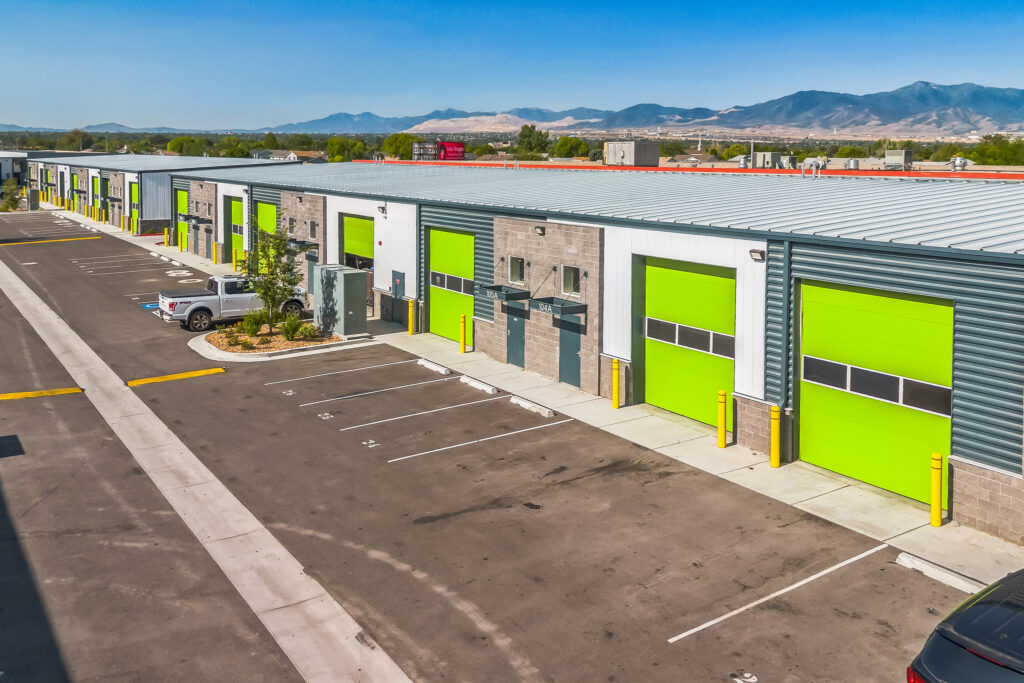When you work with your hands, every day on the job comes with risks. Tools can get stolen, accidents can happen, and even a small mistake can lead to expensive claims. That’s where tradesman insurance comes in—it’s designed to protect contractors, tradespeople, and skilled workers from the unexpected.
Insurance might not be the most exciting part of running your business, but it’s one of the smartest investments you can make. In this post, we’ll explain what tradesman insurance is, what it typically covers, and how to know if you need it.
What Is Tradesman Insurance?
Tradesman insurance is a type of business insurance tailored specifically for people in the trades—like carpenters, welders, electricians, HVAC technicians, and other skilled workers. Its purpose is simple: to protect you, your tools, and your business against financial loss if something goes wrong.
Unlike personal insurance, tradesman insurance accounts for the unique risks of hands-on work. It can cover things like damage to client property, injuries that happen on the job site, or even stolen equipment. Depending on the policy, it can also include coverage for vehicles, subcontractors, and professional mistakes.
In short, tradesman insurance is a safety net that helps you keep your business running—even when the unexpected happens.
Common Types of Tradesman Insurance Coverage
Tradesman insurance isn’t one-size-fits-all. Policies can be tailored to your trade, the type of work you do, and the risks you face. For some, protection might mean covering tools and vehicles. For others, it’s about liability and employee safety. The right coverage mix ensures you’re shielded from the unexpected.
Here are the most common types of tradesman insurance coverage:
General Liability Insurance
General liability is the foundation of most tradesman policies, and for good reason—it covers the most common risks you’ll face on the job. This policy helps pay for claims if you accidentally damage a client’s property or if someone is injured because of your work. Without it, a small mistake could lead to a big financial setback.
- Example: You’re installing cabinets and accidentally damage a client’s flooring. General liability helps cover the repair costs and protects you from a potential lawsuit.
- Why it matters: Clients often require proof of liability insurance before hiring, making it essential for winning jobs and building trust.
Tools and Equipment Insurance
Your tools aren’t just gear—they’re your livelihood. Tools and equipment insurance protects the items you rely on most from theft, damage, or loss. Whether they’re stored in your van, shop, or job site, this coverage helps ensure you can replace them quickly and get back to work.
- Example: Your truck is broken into overnight and several power tools are stolen. Instead of paying thousands out of pocket, your policy covers replacement.
- Why it matters: Tool theft is one of the most common risks tradespeople face. With insurance, you’re not sidelined by delays or financial strain when it happens.
Professional Indemnity Insurance
Mistakes happen, and sometimes they lead to more than just a minor repair. Professional indemnity insurance covers legal and compensation costs if a client claims your advice, design, or work caused them financial loss. It’s especially important for trades that involve technical design or consultation.
- Example: A wiring error in a renovation project leads to expensive rework and delays. Indemnity insurance helps cover the cost of fixing the mistake and defending against claims.
- Why it matters: Even experienced professionals can face disputes. This coverage ensures one oversight doesn’t damage your finances or your reputation.
Commercial Auto Insurance
If you rely on a van or truck for your business, commercial auto insurance is essential. It covers vehicles you use for work, protecting you from liability and repair costs if you’re involved in an accident. Personal auto policies typically don’t cover business use, so having the right policy matters.
- Example: You’re driving to a job site and rear-end another car. Commercial auto covers both the damage to your vehicle and liability for the other driver’s costs.
- Why it matters: For many tradespeople, your vehicle is your office, storage, and transport all in one. Insurance keeps you on the road and in business.
Workers’ Compensation Insurance
If you have employees, workers’ compensation coverage is not only important—it’s often legally required. It covers medical costs, rehabilitation, and lost wages if someone gets hurt on the job. Worker’s comp also protects you as the employer by limiting lawsuits related to workplace injuries.
- Example: An employee is injured using heavy equipment and can’t work for several weeks. Worker’s comp covers their medical treatment and provides income support while they recover.
- Why it matters: Taking care of your crew builds trust, keeps morale high, and keeps you compliant with state laws.
Depending on your trade, you may need one or all of these coverages. A self-employed handyman might only need general liability and tool protection, while a contractor with employees and vehicles may require a broader policy mix. The right combination ensures that one accident, theft, or mistake doesn’t put your entire business at risk. In other words, tradesman insurance isn’t just about checking a box—it’s about safeguarding your livelihood, protecting your reputation, and giving you the confidence to keep building for tomorrow.
Why Tradesman Insurance Is Important
Working in the trades comes with unique risks that other types of businesses don’t face. From job sites full of hazards to valuable tools stored in your vehicle, there are plenty of ways things can go wrong. Tradesman insurance helps make sure those risks don’t derail your business or put your personal finances on the line.
Protects against unexpected costs
Even small accidents can lead to big bills. If a client trips over your ladder, if you accidentally damage a customer’s property, or if your van is in an accident, you could be personally responsible for thousands of dollars. Without insurance, those expenses come straight out of your pocket.
Builds credibility with clients
More and more customers—especially commercial and government clients—require proof of insurance before they’ll sign a contract. Having coverage can be the difference between landing a big job or being passed over. Even for homeowners, showing that you’re insured builds trust and demonstrates professionalism.
Keeps your business stable
When you’re self-employed or running a small crew, one incident could put you out of work for weeks. If your tools are stolen or an employee gets injured, the right coverage helps you recover quickly and keep jobs moving. That stability matters not just for you, but also for the clients depending on you.
Protects your reputation
In the trades, reputation is everything. If something goes wrong and you don’t have the means to make it right, it can damage your standing in the community. Insurance ensures that if a mistake happens, you can resolve it without it becoming a business-ending event.
Gives you peace of mind
At the end of the day, tradesman insurance isn’t just about protecting your business—it’s about protecting your livelihood and your future. It allows you to focus on your craft, your clients, and your growth, knowing that one accident won’t undo years of hard work.
The reality is, accidents and setbacks are part of working in the trades. You can’t always prevent them, but you can prepare for them. Tradesman insurance ensures that when the unexpected happens, it’s a challenge—not a catastrophe. It’s one of the smartest ways to protect the business you’ve worked so hard to build.
When You Need Tradesman Insurance
Not every tradesperson is legally required to carry insurance—but in practice, most will need it sooner rather than later. Insurance isn’t just a box to check, it’s a tool that allows you to take on more jobs, protect your investment, and grow your reputation as a professional.
Starting a contracting business
If you’re striking out on your own, insurance gives you a safety net from day one. Even small projects can carry big risks—like a client tripping over your ladder or a tool damaging property. Having coverage ensures you can take on work confidently without worrying that one mistake will wipe out your savings.
Signing larger projects or contracts
Many commercial clients, municipalities, and even homeowners require proof of insurance before they’ll hire you. If you don’t have coverage, you could lose out on high-value projects. On the other hand, showing that you’re insured often puts you ahead of competitors who can’t meet those requirements.
Hiring employees or subcontractors
The moment you bring other people onto your team, your risk increases. Workers’ compensation and liability coverage protect you, your staff, and your business if something goes wrong on the job. Without it, one accident could leave you responsible for medical bills and legal claims.
Working with high-value tools or vehicles
Tradespeople often invest thousands of dollars in tools, equipment, and vehicles. If they’re stolen, damaged, or involved in an accident, replacing them out of pocket can be overwhelming. Insurance helps you get back to work quickly instead of pausing jobs while you recover from the loss.
Operating in high-risk environments
Some trades naturally involve more risk—construction, electrical work, plumbing, or anything involving heavy equipment. Even with the best safety practices, accidents happen. Insurance ensures that when they do, you have the resources to make things right without draining your business finances.
Building client trust
Even if your trade doesn’t require insurance by law, carrying coverage is often the difference between being seen as “just another contractor” and being recognized as a professional. Clients know that if something goes wrong, you have the backing to resolve it—making them far more likely to hire you.
In short, tradesman insurance becomes important the moment your work could impact someone else’s property, safety, or finances—which is almost always in the trades. Whether you’re just starting out or running an established crew, carrying coverage protects you from risks you can’t always see coming. It’s not just about meeting requirements or landing bigger jobs—it’s about safeguarding the business you’ve built and making sure one accident doesn’t stop you from moving forward.
Tips for Choosing Tradesman Insurance Coverage
With so many different insurance policies available, it can be tough to know which ones are right for your trade. The good news: you don’t have to overcomplicate it. Choosing coverage is really about understanding your risks, protecting what matters most, and making sure you’re not paying for things you don’t need. Here are some detailed tips to help guide you:
Assess your risks
Every trade comes with unique challenges. Carpenters deal with saws and power tools, plumbers work in tight spaces with water damage risks, and electricians face wiring hazards. Start by listing the top three risks you face on the job, then look for policies that cover those specifically.
Protect your tools and equipment
Your tools are your livelihood. If you rely on expensive saws, welding rigs, diagnostic machines, or even just a full set of hand tools, consider tool and equipment insurance. Without it, a theft or accident could stop your work cold. With it, you can replace your gear quickly and keep projects moving.
Don’t overlook vehicles
If your van or truck is essential to your business, commercial auto coverage is a must. Standard personal auto policies often deny claims if the vehicle is used primarily for work. Think about everything in your van—tools, supplies, ladders—and how quickly a single accident could cost you more than the vehicle itself.
Consider your team size
Once you bring on employees or subcontractors, your risks multiply. Many states require workers’ compensation coverage even for a single employee. Beyond legal requirements, having coverage shows your crew you’re looking out for them—which builds trust and loyalty.
Shop around and compare
No two insurance providers are the same. Some specialize in contractors or small businesses, while others treat you like just another policy number. Get multiple quotes and look beyond just the price—compare deductibles, exclusions, and claim support. Sometimes the cheapest option ends up costing the most when you actually need it.
Work with a broker if needed
If the options feel overwhelming, an insurance broker can help cut through the noise. A good broker understands the risks of specific trades and can match you with policies designed for your work. They’ll also explain terms in plain language and handle the shopping for you.
Choosing the right tradesman insurance comes down to one thing: matching your policy to the real risks of your work. The more accurately you assess your needs, the better protected your business will be. The right coverage isn’t just an expense—it’s an investment in your stability, your reputation, and your ability to keep saying “yes” to new opportunities without fear.
Protect Your Work, Protect Your Future
Working in the trades means taking on risk every day—but that risk doesn’t have to fall entirely on your shoulders. Tradesman insurance gives you the protection and peace of mind to keep your business moving, no matter what comes your way. From covering stolen tools to backing you up on big projects, the right coverage helps you stay professional, stay prepared, and stay in business.
At WorkBay, we know the challenges contractors and tradespeople face, because we’ve built our spaces around your needs. Just like insurance protects your livelihood, our move-in ready, trade-friendly units give you the professional space to grow with confidence.
See available locations, schedule a tour, or talk to our team today.





